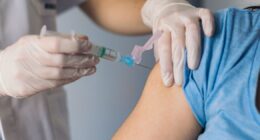
Screening programmes for childhood hearing loss need to improve data collection and outcomes in order to produce better quality, such as higher follow-ups.
Hearing Screening Program for Children
The thesis evaluated, among other things, how well the childhood hearing screening programmes were performing as well as the strategies used to improve their outcome.
“For example, we carried out an international survey about the status of screening programmes in both high- and middle-income countries in Europe, as part of a large multicenter project,” says Allison Mackey, who recently completed her doctoral thesis under the supervision of Inger Uhlén at the Department of Clinical Science, Intervention and Technology, Karolinska Institutet. “It showed that most high-income countries perform newborn hearing screening on all infants, however, only a few middle-income countries had similar programmes. We also found that in most countries, data were not available regarding the outcomes of the screening programme.”
‘One in 500 infants have a permanent hearing loss, which can affect the development of their spoken language. Spoken language sets the stage for reading, social communication and education.’
Advertisement
READ RELATED: The really healthy way to shop and eat as PROFESSOR TIM SPECTOR launches an eye-opening series
The passing criteria used for screening are important determinants for programme sensitivity. Stricter criteria will lead to more babies with hearing loss being detected in the screening programme.
“Though, unfortunately, the lack of data across many programmes makes it difficult to evaluate the quality of screening programmes,” Allison Mackey says. “If decision-makers want to address issues such as loss to follow-up, they first need to know the status quo. Therefore, the very first step toward improving a screening programme is to set up processes for collecting data, and regularly monitoring and evaluating outcomes.”
Source: Eurekalert
Advertisement
Source:









